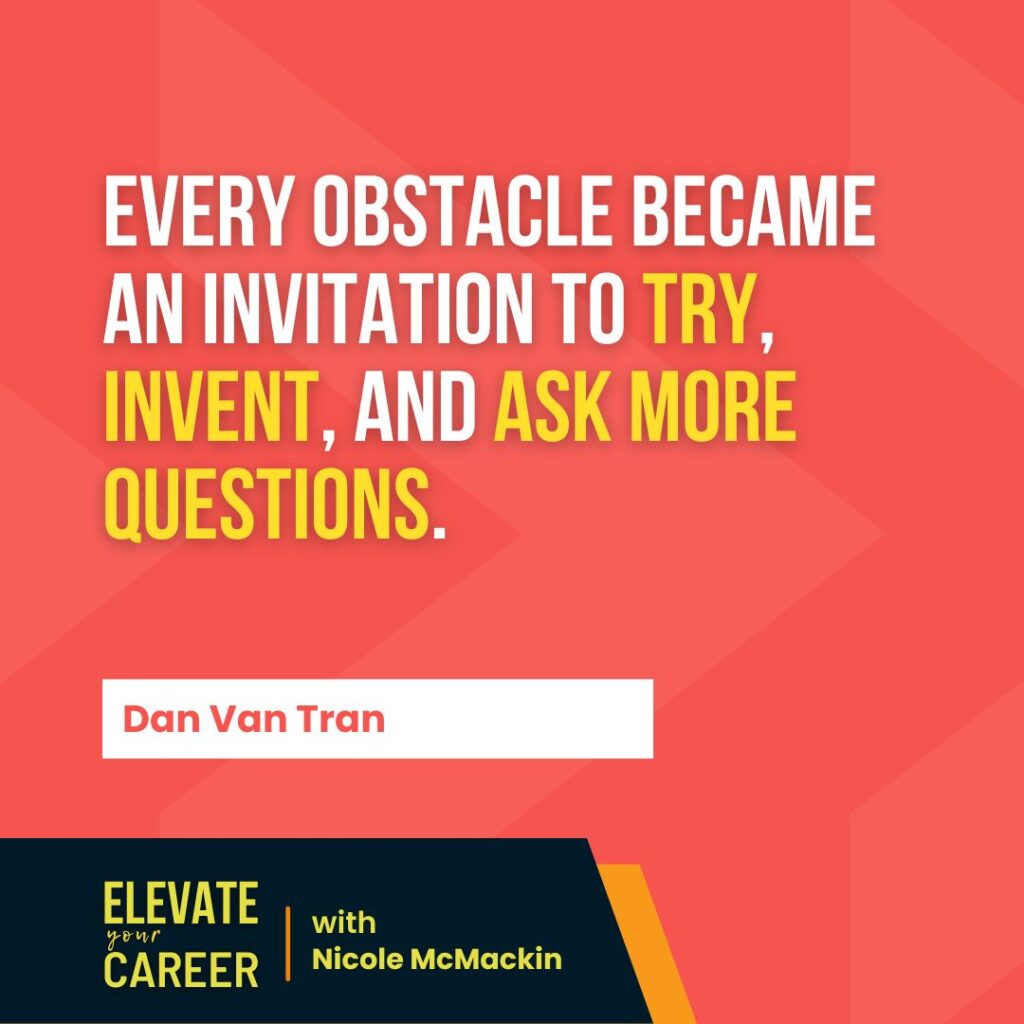Career Agility: Why Continuous Learning Is the New Job Security
News • October 24, 2025

By Nicole McMackin
In today’s technology-driven economy, job security no longer comes from staying in one role for years. With rapid advances in automation, artificial intelligence, and digital transformation, professionals and organizations must embrace continuous learning to stay relevant. At ITC, we see this reality every day when working with both clients and consultants. Those who make a habit of learning, adapting, and expanding their skill sets are the ones who move forward the fastest and create long-term stability in their careers.
The future of work is being reshaped by a combination of technological innovation and shifting workforce expectations. According to the World Economic Forum’s Future of Jobs Report 2025, nearly 39 percent of workers’ existing skill sets will change by 2030. What this means for technology professionals is simple: being skilled today does not guarantee being skilled tomorrow. McKinsey & Company has noted that the need for digital fluency now extends well beyond traditional IT teams, emphasizing that “we are all techies now.” This reinforces the idea that adaptability and lifelong learning are becoming the most valuable professional assets.
Continuous learning creates what we call career agility. Adaptability is replacing traditional notions of job security. For example, a recent survey found that 36 percent of workers do not feel their current job skills will help them attain a promotion today, and 33 percent believe their skills fall short of what is required for advancement. These findings make clear that those who rest on past training and outdated skill sets risk being passed over for promotions or new opportunities. One professional in a mid-sized IT organization shared that despite excellent performance in his role, he was passed over for a senior technical lead position because his skills had not kept pace with emerging needs in cloud computing, cybersecurity, and data automation. The selected candidate had recently earned new certifications and taken on stretch projects that expanded his technical range demonstrating how continuous learning translates directly into career advancement.
For ITC’s clients and hiring partners, this shift means prioritizing learning agility as much as technical skill when evaluating candidates. Companies that invest in developing internal learning programs and promoting cross-training are better able to pivot as technologies evolve. Skill-based hiring, rather than relying solely on degrees or past job titles, is becoming a competitive differentiator. For consultants and technology professionals, this is the time to take ownership of your development. Create a learning roadmap that identifies emerging skills in your field. Commit to certifications, short courses, and stretch projects that expand your capabilities. Most importantly, treat learning as a continuous part of your professional identity.
The World Economic Forum highlights several in-demand skill areas that will shape the next decade, including cloud architecture, cybersecurity, artificial intelligence, and data analytics. Professionals who engage with these topics regularly through coursework, podcasts, or side projects signal to employers that they are prepared for what comes next. Organizations that encourage similar behaviors within their teams build loyalty and resilience, especially in a competitive technology market.
At ITC, our work sits at the intersection of talent and technology, and we have witnessed the benefits of continuous learning firsthand. The most successful consultants we place are those who demonstrate curiosity and a desire to grow. Likewise, the most forward-thinking organizations are those that create space for their teams to learn, experiment, and evolve. Hiring for potential and a learning mindset has become one of the most reliable indicators of long-term success.
In a world defined by constant change, continuous learning is the single best form of job security. For individuals, it ensures relevance, confidence, and opportunity. For companies, it builds stronger, more innovative teams that can adapt to the unknown. At ITC, we believe that a commitment to learning not only elevates careers but strengthens the entire technology community.

By Nicole McMackin
In today’s technology-driven economy, job security no longer comes from staying in one role for years. With rapid advances in automation, artificial intelligence, and digital transformation, professionals and organizations must embrace continuous learning to stay relevant. At ITC, we see this reality every day when working with both clients and consultants. Those who make a habit of learning, adapting, and expanding their skill sets are the ones who move forward the fastest and create long-term stability in their careers.
The future of work is being reshaped by a combination of technological innovation and shifting workforce expectations. According to the World Economic Forum’s Future of Jobs Report 2025, nearly 39 percent of workers’ existing skill sets will change by 2030. What this means for technology professionals is simple: being skilled today does not guarantee being skilled tomorrow. McKinsey & Company has noted that the need for digital fluency now extends well beyond traditional IT teams, emphasizing that “we are all techies now.” This reinforces the idea that adaptability and lifelong learning are becoming the most valuable professional assets.
Continuous learning creates what we call career agility. Adaptability is replacing traditional notions of job security. For example, a recent survey found that 36 percent of workers do not feel their current job skills will help them attain a promotion today, and 33 percent believe their skills fall short of what is required for advancement. These findings make clear that those who rest on past training and outdated skill sets risk being passed over for promotions or new opportunities. One professional in a mid-sized IT organization shared that despite excellent performance in his role, he was passed over for a senior technical lead position because his skills had not kept pace with emerging needs in cloud computing, cybersecurity, and data automation. The selected candidate had recently earned new certifications and taken on stretch projects that expanded his technical range demonstrating how continuous learning translates directly into career advancement.
For ITC’s clients and hiring partners, this shift means prioritizing learning agility as much as technical skill when evaluating candidates. Companies that invest in developing internal learning programs and promoting cross-training are better able to pivot as technologies evolve. Skill-based hiring, rather than relying solely on degrees or past job titles, is becoming a competitive differentiator. For consultants and technology professionals, this is the time to take ownership of your development. Create a learning roadmap that identifies emerging skills in your field. Commit to certifications, short courses, and stretch projects that expand your capabilities. Most importantly, treat learning as a continuous part of your professional identity.
The World Economic Forum highlights several in-demand skill areas that will shape the next decade, including cloud architecture, cybersecurity, artificial intelligence, and data analytics. Professionals who engage with these topics regularly through coursework, podcasts, or side projects signal to employers that they are prepared for what comes next. Organizations that encourage similar behaviors within their teams build loyalty and resilience, especially in a competitive technology market.
At ITC, our work sits at the intersection of talent and technology, and we have witnessed the benefits of continuous learning firsthand. The most successful consultants we place are those who demonstrate curiosity and a desire to grow. Likewise, the most forward-thinking organizations are those that create space for their teams to learn, experiment, and evolve. Hiring for potential and a learning mindset has become one of the most reliable indicators of long-term success.
In a world defined by constant change, continuous learning is the single best form of job security. For individuals, it ensures relevance, confidence, and opportunity. For companies, it builds stronger, more innovative teams that can adapt to the unknown. At ITC, we believe that a commitment to learning not only elevates careers but strengthens the entire technology community.
Share This Article
Related Resources
Women in Leadership Certification Program for Spring 2026
This March, Irvine Technology Corporation is proud to launch the next cohort of our highly sought-after Women…
Why 2026 Will Redefine Technology Hiring and the Leaders Who Get It Right
As we enter 2026, the technology employment and staffing landscape is evolving with renewed complexity and opportunity….
The 2026 Tech Job Market: What to Expect & How to Be Ready
By Russell Wolf, Director of Recruiting & Delivery at Irvine Technology Corporation The tech job market…
75 | Dan Van Tran | Breakthrough Mindsets: Unlocking Opportunity When the World Says “No”
What does real success look like when your journey starts with nothing and every win must be…











